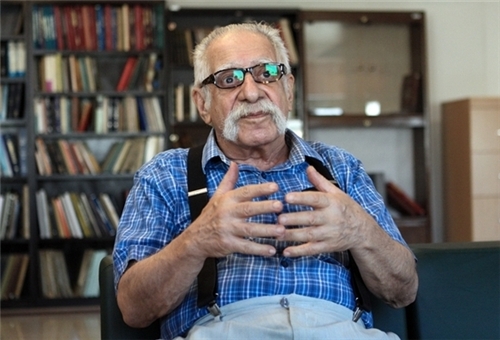 TEHRAN (FNA)- The American academic society who refuses to return the Persian Achaemenid tablets to Iran after decades has now reached out to an Iranian expert and translator of Elamite and Akkadian languages to translate the tablets into Persian and English.
TEHRAN (FNA)- The American academic society who refuses to return the Persian Achaemenid tablets to Iran after decades has now reached out to an Iranian expert and translator of Elamite and Akkadian languages to translate the tablets into Persian and English.Gil J. Stein, the Director of the Oriental Institute and Professor of Near Eastern Archaeology in the department of Near Eastern Languages and Civilizations at the University of Chicago, who is in Iran now has called on Abdolmajid Arfayee, the translator of the Cyrus Cylinder, to translate the Achaemenid tablets which have been confiscated by a court in the US.
�The proposal for reading the remaining Achaemenid tablets which have been confiscated by a US court was raised to me by the director of the Oriental institute of Chicago,� Arfayee told FNA on Monday.
Asked if he would travel to the US to read and translate the tablets, Arfayee said, �No. They are due to send the photos of these tablets to me to read them in Iran and translate them into the two languages of Persian and English.�
The tablets were discovered by the University of Chicago archaeologists in 1933 while they were excavating in Persepolis, the site of a major Oriental Institute excavation.
The artifacts bear cuneiform script explaining administrative details of the Achaemenid Empire from about 500 BC. They are among a group of tens of thousands of tablets and tablet fragments that were loaned to the university's Oriental Institute in 1937 for study. A group of 179 complete tablets was returned in 1948, and another group of more than 37,000 tablet fragments was returned in 1951.
In spring 2006, US District Court Judge Blanche Manning ruled that a group of people injured by a 1997 bombing in Israel could seize the 300 clay tablets loaned to the University of Chicago's Oriental Institute and the university cannot protect Iran's ownership rights to the artifacts.
Following Iranian officials' protests against the ruling, the court was slated to reexamine the case on December 21, 2006, but the court session was postponed to January 19, 2007, allegedly due to the fact that Iran had not provided all the documents required by the court.
The court session was held on the above-mentioned date, but no verdict was issued.
Museum of London has voiced its support for the return of the collection of clay tablets to Iran as the owner of the artifacts.
The Oriental Institute holds 8000 to 10,000 intact and about 11,000 fragmented tablets, as estimated by Gil Stein, the director of the university's Oriental Institute.
By Fars News Agency
The Iran Project is not responsible for the content of quoted articles.











